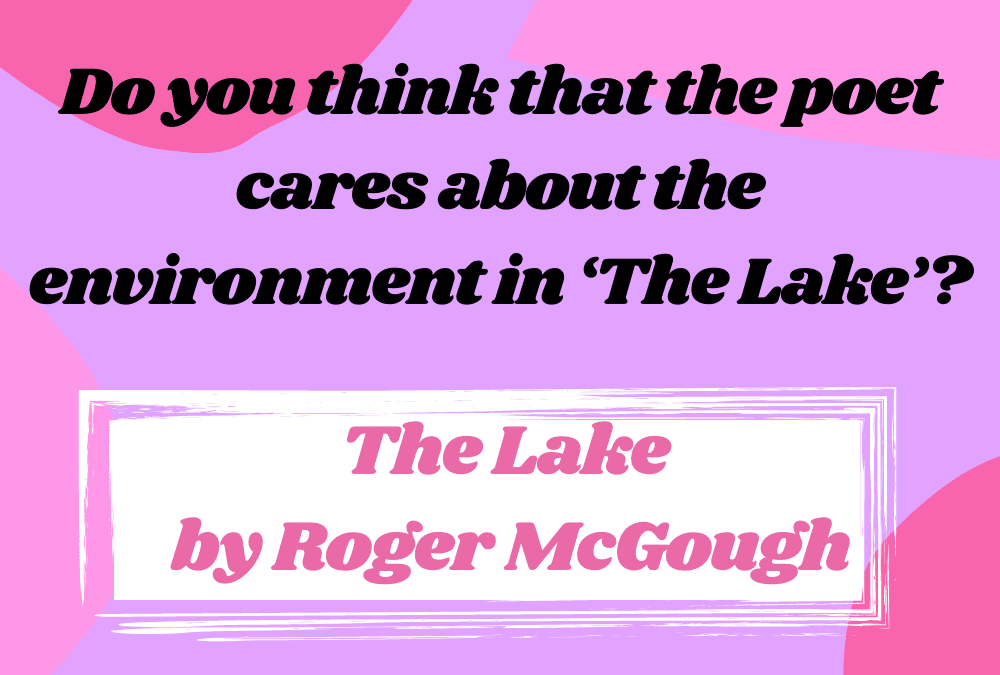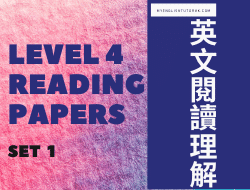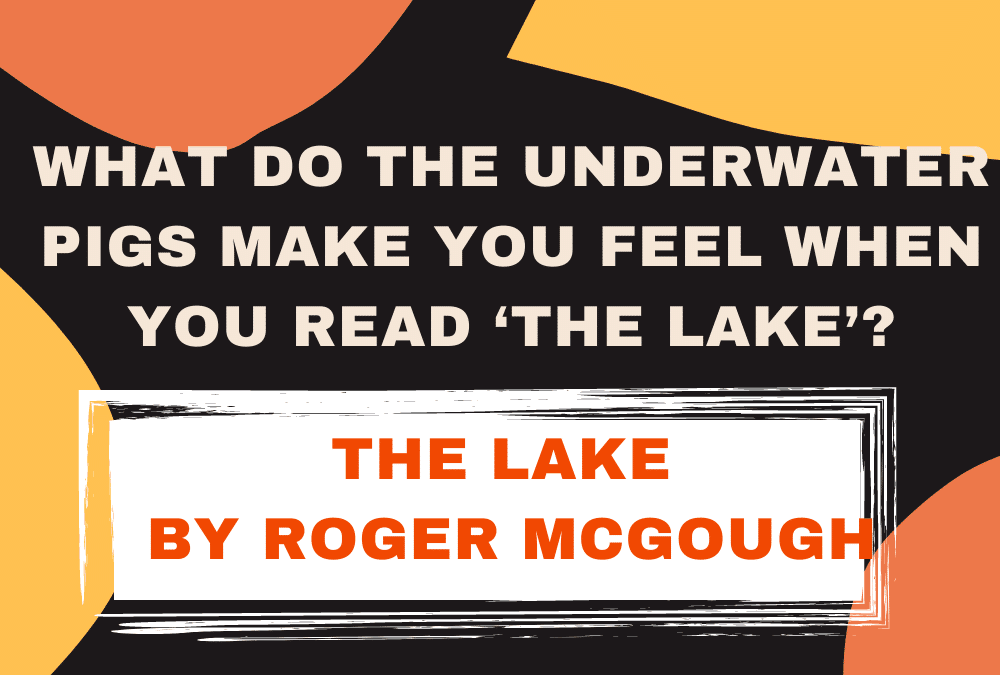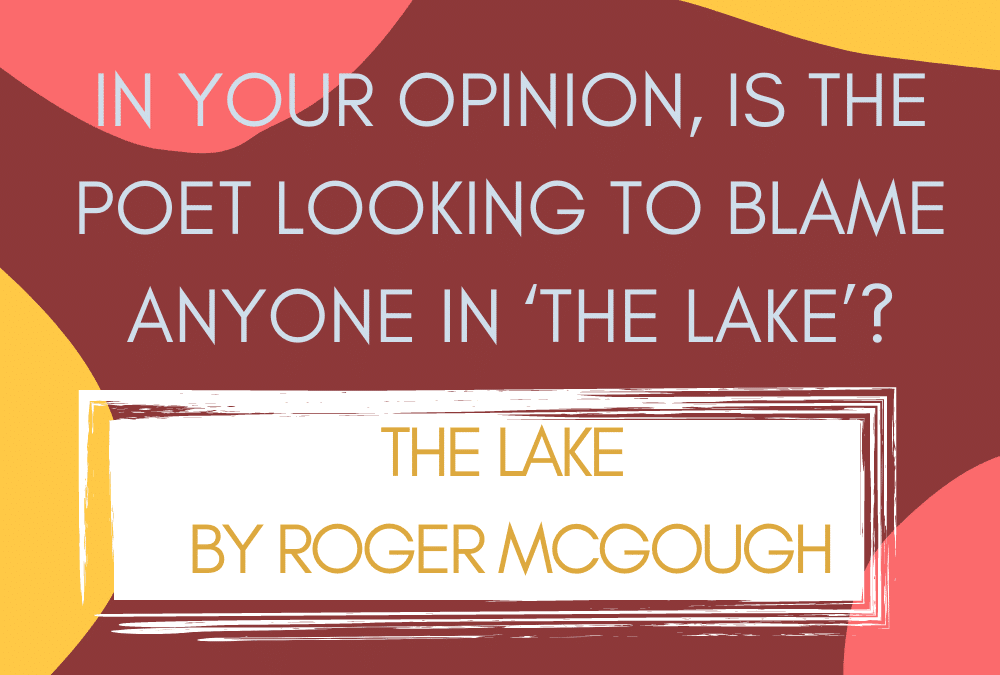
The Lake by Roger McGough Essay 04
The Lake by Roger McGough
The Lake Essay 4
Do you think that the poet cares about the environment in ‘The Lake’? Give reasons.
My opinion is that the poet is very concerned about the environment. He seems unhappy that a once-beautiful lake is now something that people go out of their way to avoid. The cause that is hinted at for its degradation is pollution. In the water there are no longer fish but instead plastic bags and other litter that passers-by have dumped there. I think that the invention of the underwater pigs, who are now ready to eat human beings, is a warning to readers of the poem that our wasteful habits will have serious consequences. It is important that the first stanza of the poem alludes to the assumptions of Romantic poetry. The line ‘the sedge of course has withered’ refers to a line in a famous poem by the early nineteenth-century poet John Keats, ‘La Belle Dame Sans Merci’: ‘The sedge has withered from the lake’. Romantic poetry typically celebrated the beauty of nature, or its magical, enchanting properties. Even its ugliness was redeemable, as in Keats’s poem. In McGough’s poem, the natural environment is completely beyond saving and the poet feels distressed by its bleakness.





